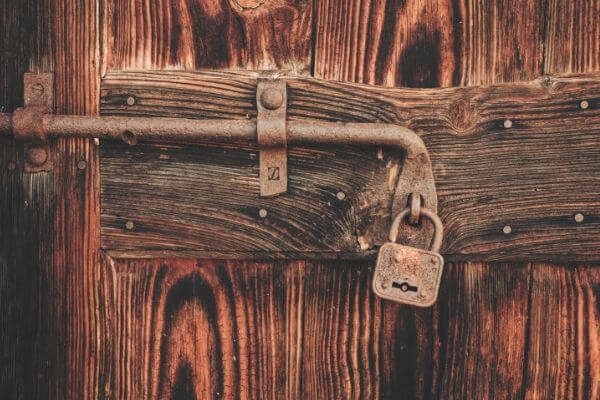
Chinese courts are studying how to protect the parties’ trade secrets from disclosure during litigation.
Research by the courts of Jiangsu Province shows that there are still some loopholes in the trade secrets protection by courts under the current Chinese civil procedure.
In order to know whether trade secrets will be disclosed in the lawsuit, Jiangsu High People's Court has set up a working group to carry out research on this issue. The group has analyzed all cases of infringement of trade secrets (241 cases in total) that occurred in Jiangsu Province from 2007 to 2017, and interviewed entrepreneurs, judges, lawyers, scholars, and litigants involved in the cases.
In the end, the group came up with a report entitled "Study on Preventing the Leakage of Commercial Secrets in Intellectual Property Litigation" (知識產權訴訟中防范商業秘密泄露問題研究), [1] which was published in "Journal of Law Application" (法律適用) (No. 9, 2018). From this report, we can get a general understanding of how Chinese courts deal with the parties' trade secrets in litigation.
1. Legislation Concerning Trade Secrets
Currently, China has no special legislation on the protection of trade secrets in litigation. The relevant rules are scattered in different provisions, and some of them are not applicable to all cases involving trade secrets, such as the "Provisions on Several Issues Concerning the Application of Law in Hearing Civil Disputes Caused by Monopoly Acts" (關于審理因壟斷行為引發的民事糾紛案件應用法律若干問題的規定) (hereinafter referred to as Monopoly Cases Provisions).
Moreover, these rules mainly focus on the protection of the infringed party (plaintiff)’s trade secrets. However, no necessary measures are provided for the potential risk of the alleged infringing party(defendant)'s trade secrets being disclosed, which leads to worries among defendants that their trade secrets would be leaked, and consequently, to the failure to submit evidence against the plaintiff.
2. The Procedure for Private Hearings
Pursuant to China's Civil Procedure Law (CPL), if a party applies to the court for a private hearing on a trade secrets-related case, the case will not be heard publicly with the court's approval.
Firstly, this means that judges cannot call for a private hearing ex officio. Moreover, Chinese laws do not stipulate that judges are obliged to remind the parties in such cases. Therefore, some litigants (especially the defendants) forget to apply for a private hearing.
Secondly, if the trade secrets involved in the case belong to a third party, is the third party entitled to apply for a private hearing? Chinese laws do not provide for this issue.
Thirdly, if the case is not heard publicly, who has the right to participate in the trial besides the parties and their lawyers? Again, Chinese laws do not provide for this issue.
3. The Cross-examination of Evidence Concerning Trade Secrets
According to CPL, the parties concerned shall keep confidential the evidence involving trade secrets; if such evidence needs to be presented in court, it shall not be presented in public hearings.
In accordance with the Monopoly Cases Provisions, the following confidentiality measures can be taken during litigation for evidence involving trade secrets: (1) The evidence is only presented in private hearings; (2) Restrict the scope of those who have access to the evidence, namely, only show it to lawyer and other legal representatives; (3) Restrict or prohibit the copy of such evidence; (4) The court may order those who have access to the evidence to sign a confidentiality undertaking.
It can be seen from this that only the legal representative has the right of access to the evidence during a private hearing. If one lacks sufficient knowledge about the trade secret and its technical issues, it is difficult to effectively cross-examine the evidence.
In addition, the above-mentioned confidentiality measures are merely applicable to cases involving monopoly, and Chinese laws do not stipulate specific confidentiality measures in other cases.
4.Trade Secrets in Evidence Preservation
Evidence preservation occurs where the court decides to take certain preservation measures to control evidence on its own initiative or upon the application of the parties in case the evidence may be lost or difficult to obtain later.
The risks of disclosure of trade secrets that may occur in evidence preservation include:
(1) The applicant (usually the plaintiff) for evidence preservation may request the court to take necessary confidentiality measures. Nevertheless, before the evidence is preserved, it is often not known which trade secrets are involved in the evidence, which results in confidential information not being kept confidential timely.
(2) The preserved evidence may also involve the trade secrets of the respondent (usually the defendant). The court usually decides whether to take confidentiality measures according to the conditions after taking preservation measures. Before the confidentiality measures being taken, the trade secrets of the respondent may have already been leaked.
(3) Chinese laws do not stipulate what measures the court shall take to prevent the disclosure of secrets when preserving evidence involving trade secrets. In practice, when the court takes preservation measures, it will often notify the plaintiff and the defendant, lawyers and their technical experts to the scene, in order to facilitate the court to confirm the evidence to be preserved after soliciting their opinions. But these people are likely to have access to other secret information on the scene.
5. Trade Secrets at Other Stages of Litigation
There may also be hidden dangers of disclosure of trade secrets in filing cases, binding files and subsequently making them into electronic ones, making judgment documents available online, borrowing and browsing files, etc.
When filing cases, the complaint, and evidence submitted by the parties are usually not subject to special confidentiality measures during the process of transferring from the Case-filing Division to the judges.
In the steps of file binding and scanning, there is also the problem of insufficient confidentiality measures. In particular, Chinese courts are currently making all case files into electronic ones and storing them in the courts' information system. Consequently, the courts' information system security will affect the safety of trade secrets.
China is currently making all the judgment documents accessible online. It is noteworthy that some judgments shall not be made public, including judgments of cases involving state secrets and crimes committed by minors, but excluding cases involving trade secrets. For judgments involving trade secrets, the courts shall delete the trade secrets-related contents before making them public, which may not be sufficient to meet the needs of all parties concerned.
In addition, the lawyers of the parties can browse the case files in the court. Although the SPC stipulates that lawyers shall keep confidential the trade secrets in their case materials, they still have access to the materials and evidence of all parties involved in the case.
6. Disciplinary Mechanism for Leakers
Chinese courts have not yet formed an effective mechanism on these matters, including: how to confirm whether the subject who bears the obligation of confidentiality has disclosed the secrets, what responsibility the subject shall bear, and how to remedy if the subject has any objection after being held accountable for disclosing the secrets.
7. Our Commentaries
The Jiangsu High People's Court also put forward some solutions in its research report, which shows that the court has realized the significance of this problem and is trying to solve it. Therefore, there is a possibility that courts in Jiangsu Province will take the lead in taking certain measures in the future. Courts in other areas, especially Intellectual Property Courts, may also consider improving their practices.
However, at present, the trade secrets of the parties are indeed likely to be disclosed in the litigation. So the parties concerned shall take necessary measures, such as:
- The parties concerned shall apply to the court for a private hearing as soon as possible.
- The materials submitted by the parties when filing the case shall involve as few trade secrets as possible; the parties shall later submit materials involving many trade secrets directly to the specific judge after the court allocates the case to a judge, and call the attention of the judge to the fact that these materials involve trade secrets;
- Chinese laws do not require the parties to disclose all relevant evidence to the court. Therefore, the parties concerned had better not submit to the court as much as possible materials that have little effect on the case and involve important trade secrets.
- In the process of evidence preservation, the parties concerned shall prompt the court in time to take which necessary confidentiality measures.
- After the court makes the judgment, the parties concerned shall inform the judge as soon as possible which contents of the judgment involve trade secrets and shall be deleted when it is made public.
References:
[1] 江蘇省高級人民法院課題組,劉嬡珍. 知識產權訴訟中防范商業秘密泄露問題研究[J].法律適用,2018,(09):107-113.
If you would like to discuss with us about the post, or share your views and suggestions, please contact Ms. Meng Yu (meng.yu@chinajusticeobserver.com).
Contributors: Guodong Du 杜國棟 , Meng Yu 余萌









